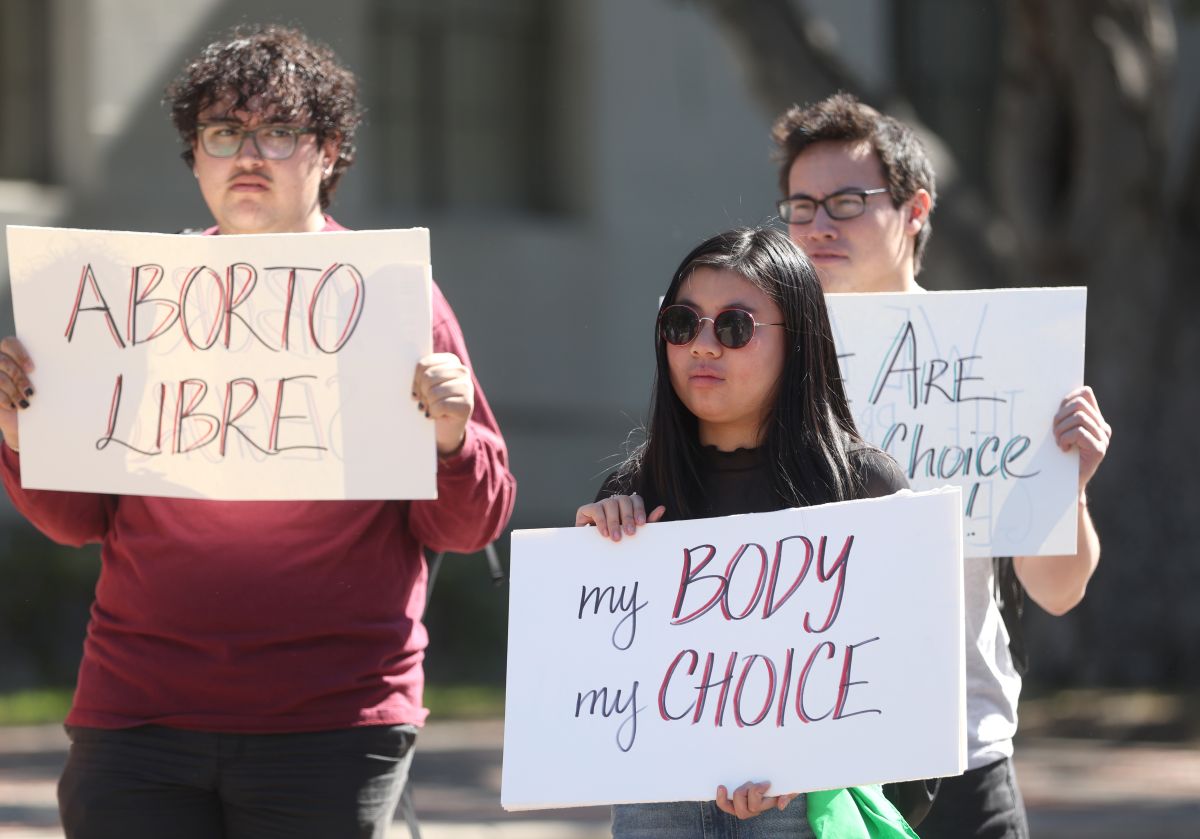In the early winter of 1973, just after Roe v. Wade legalized abortion nationwide, I got pregnant. I, Luz Towns, was 12 years old and had just survived cancer. I knew I wanted to have a baby, but what was so powerful in that moment was that I was able to decide what to do with my body. That is why I continue to be a defender of reproductive rights, and our family strongly supports organizations such as Profamilias and initiatives such as the “Feminist Medical Training Program: I Decide”, a program dedicated to training medical professionals to provide abortion care. .
We are on the brink of massive change for generations of women, especially those in remote communities and/or politically hostile to reproductive rights. In effect, women will continue to have the freedom to choose in 24 states in the continental United States, and more states will move to add protection through the constitution of your state. Still, many will be forced to drive, or find transportation, and travel hundreds of miles to receive services. Others who are not in the continental US will have to take a flight, if they can afford it.
Many others, mostly people of color and/or young people, will have no choice but to risk their choosing an unsafe abortion because many women face financially, emotionally and logistically challenging, and life-threatening challenges.
It is not only the legality of the procedure that will become a barrier.
How does the possible revocation of federal protection for abortion affect the territories from the US, especially to Puerto Rico? How does Puerto Rico face barriers to access to abortion? Let’s talk about Profamilias (Family Planning Association of Puerto Rico), which is a partner entity of the Fòs Feminista Organization: International Alliance for Reproductive and Sexual Health, Rights and Justice.
Profamilias is the the only non-profit community organization in Puerto Rico that offers access to contraceptive methods, sexual education and, from 2010, abortion services. They also advocate against misleading “Targeted Restrictions on Abortion Providers” (TRAP) laws and other laws that threaten access to reproductive health care. If we lose federal protection for abortion, it will continue to be legal in Puerto Rico. However, protection is threatened by more than 10 (and more could come) anti-abortion bills. Recently, we have seen increased persecution of abortion providers and clinics by anti-rights groups and right-wing political parties.
Meanwhile, Profamilias continues against all odds to increase access to safe abortion on the island. A unique feature of Profamilias is the “Feminist Medical Training Program: I Decide,” its initiative dedicated to training medical professionals to provide abortion care.
We found that in Puerto Rico and many US states, the majority of abortion providers were men older than 60 year old. We realized that provider shortages would continue to worsen if people were not trained, especially in a small archipelago where accessible reproductive health care is limited by its geographic location. We also saw that medical programs in Puerto Rico did not provide training on first-trimester abortions, and not for lack of interested students.
“The Feminist Medical Training Program: I Decide” trains and compensates Puerto Rican doctors to become certified abortion providers. This easily replicable program aims to increase access to abortion and fill gaps in abortion care across the island. To date, the program has trained 12 providers in first trimester pregnancy termination, which is twice the number of trained physicians he had the entire island before the show started. It has also equipped providers to include abortion care in their existing medical practice, reducing barriers to equitable and inclusive access to abortion outside of traditional reproductive health clinics and the San Juan metropolitan area. This is just the beginning.
The pro-reproductive rights states like Colorado, New Mexico, Nevada, Illinois and others have the opportunity to implement similar training programs to meet the expected increase in demand from out-of-state patients.
It is time to redouble our efforts. Let’s keep marching; elect leaders at the state level to pass pro-reproductive rights laws to expand access, build training programs to expand capacity, support reproductive rights funds across the country to cover additional travel costs for patients who come from out of state, and let’s guarantee the work of our existing abortion providers.
Now, it’s up to us. How will you be proactive today?
Dr. Luz Towns-Miranda is a psychologist and former member of the board of directors of the Fund for Family Planning. Frances Collazo is co-executive director of Profamilias.
This column was originally published in English by Remix.
